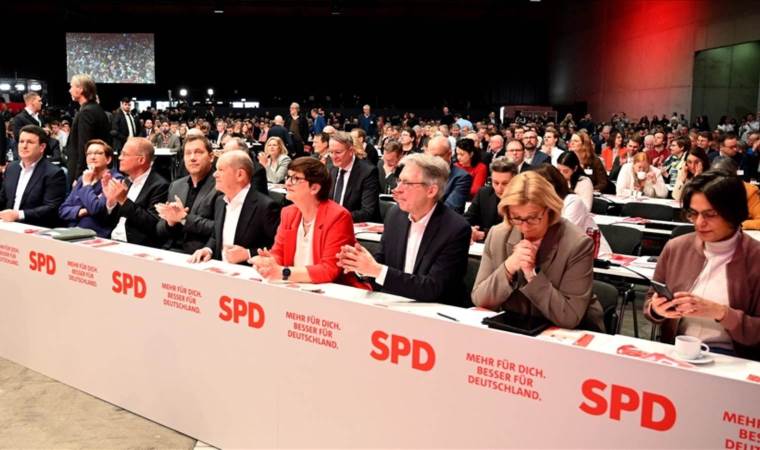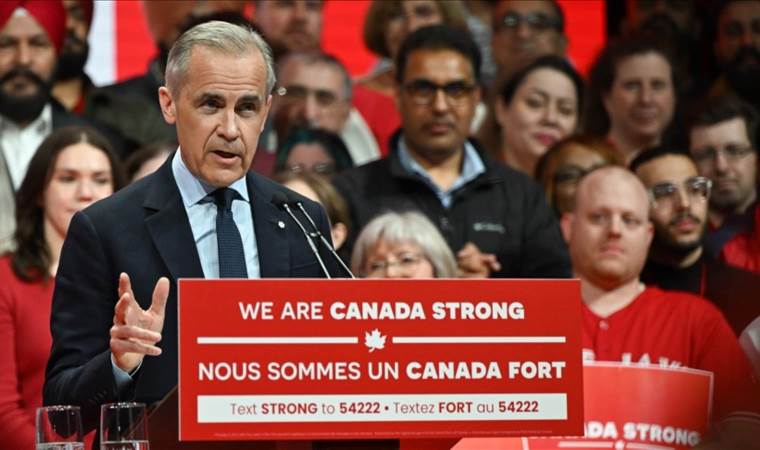German Social Democrats conclude key vote on coalition deal
Germany's Social Democratic Party (SPD) will conclude a decisive membership vote Tuesday night on forming a coalition government with the conservative CDU/CSU alliance.

The mini-referendum of around 358,000 SPD members requires a simple majority and minimum 20% turnout to approve the coalition agreement. SPD Secretary General Matthias Miersch has confirmed that voter participation has already surpassed the threshold, making the outcome binding for party leadership.
Senior SPD lawmaker Ralf Stegner expressed confidence that members would approve the coalition agreement, clearing the way for a new government after months of negotiations. Speaking to public broadcaster NDR, the veteran leftist warned that the SPD's rejection of a coalition with the conservative CDU/CSU would strengthen the far-right AfD party.
““In its history, the SPD has never allowed right-wing extremists to influence governments. And that is what threatens to happen if the coalition government between Social Democrats and Christian Democrats is not formed. It would strengthen the influence of the far right - and that must not be allowed,” Stegner said.
Some conservative politicians had recently suggested that the CDU/CSU should reach out to AfD voters and reconsider its stance against the party. However, this proposal faced strong opposition both within the party and from the public.
The results of the SPD's online vote, which began April 15, will be announced at a press conference at party headquarters Wednesday morning. Members received unique postal passwords to cast encrypted votes online. SPD members also have the option to vote at designated party offices across the country.
Chancellor-designate Friedrich Merz's Christian Democratic Union (CDU) approved the coalition agreement Monday at a special party conference in Berlin. The CDU's Bavarian sister party, the Christian Social Union (CSU), endorsed the deal earlier this month.
If Social Democrats approve the agreement, party leaders will hold the official signing ceremony on May 5. Parliament will then convene on May 6 to elect Friedrich Merz as chancellor, replacing Olaf Scholz.
The Christian Democrats (CDU/CSU) won 28.5% in February's snap elections but fell short of an outright majority. Though the Social Democrats received their lowest-ever result at 16.4%, they emerged as a crucial coalition partner. Together, the parties will control 328 seats in parliament, well above the 316-seat threshold needed for a governing majority.
Most Read News
-
 No Future Without Industry: A Call for Production-Orient
No Future Without Industry: A Call for Production-Orient
-
 Israel’s Ben-Gvir ends US visit amid pro-Palestine prote
Israel’s Ben-Gvir ends US visit amid pro-Palestine prote
-
 Japan seeks collaboration to advance nuclear disarmament
Japan seeks collaboration to advance nuclear disarmament
-
 Major fire erupts at electrical substation in West Londo
Major fire erupts at electrical substation in West Londo
-
 Ukraine appoints new deputy defense ministers amid ongoi
Ukraine appoints new deputy defense ministers amid ongoi
-
 Malaysia urges all parties in Myanmar to continue ceasef
Malaysia urges all parties in Myanmar to continue ceasef
-
 German Social Democrats conclude key vote on coalition d
German Social Democrats conclude key vote on coalition d
-
 Canada's Liberal Party wins federal elections by over 43
Canada's Liberal Party wins federal elections by over 43
-
 At least 41 civilians killed, scores injured in RSF shel
At least 41 civilians killed, scores injured in RSF shel
-
 Israeli army arrests 22 Palestinians, demolishes 4 homes
Israeli army arrests 22 Palestinians, demolishes 4 homes









